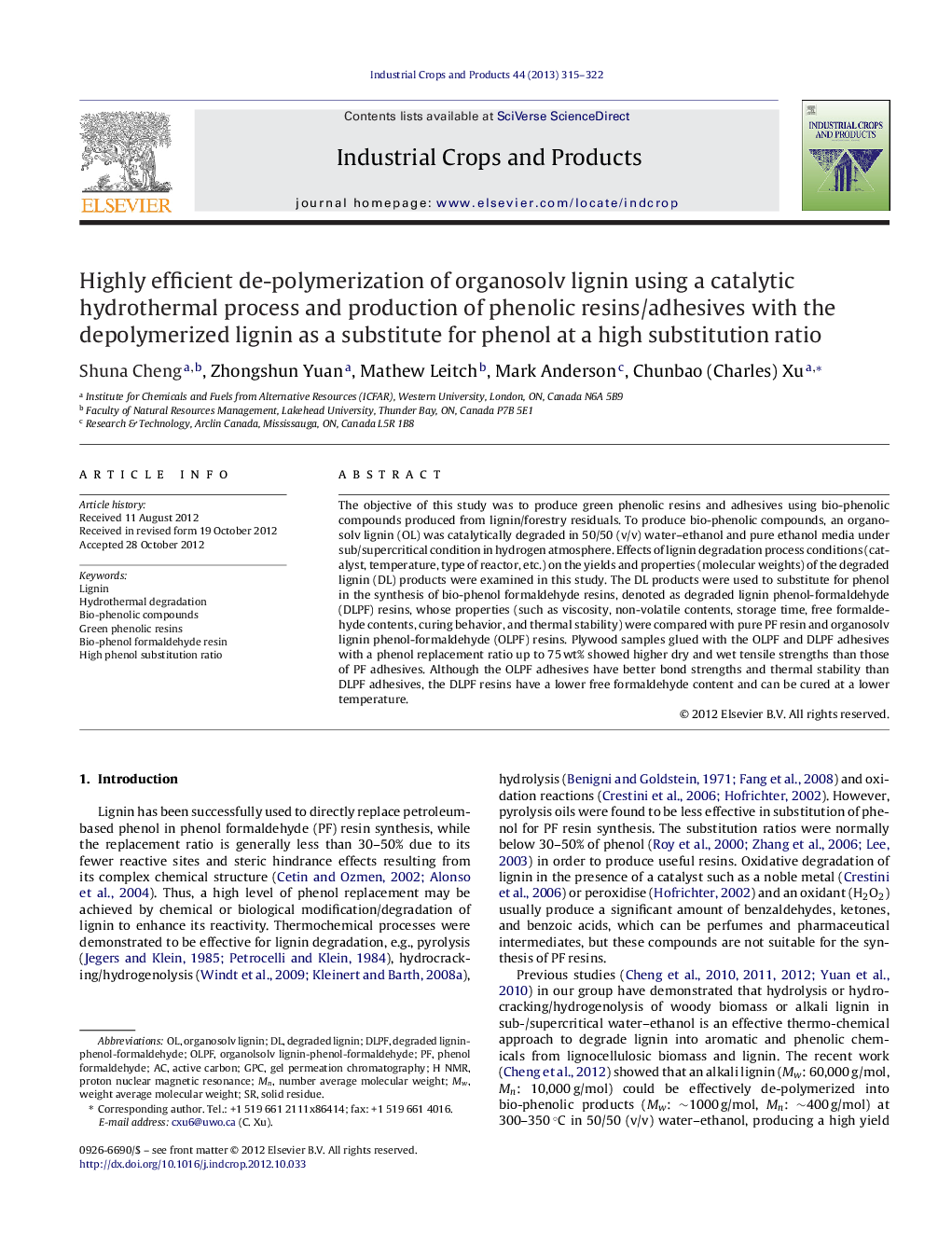| کد مقاله | کد نشریه | سال انتشار | مقاله انگلیسی | نسخه تمام متن |
|---|---|---|---|---|
| 4513648 | 1624865 | 2013 | 8 صفحه PDF | دانلود رایگان |

The objective of this study was to produce green phenolic resins and adhesives using bio-phenolic compounds produced from lignin/forestry residuals. To produce bio-phenolic compounds, an organosolv lignin (OL) was catalytically degraded in 50/50 (v/v) water–ethanol and pure ethanol media under sub/supercritical condition in hydrogen atmosphere. Effects of lignin degradation process conditions (catalyst, temperature, type of reactor, etc.) on the yields and properties (molecular weights) of the degraded lignin (DL) products were examined in this study. The DL products were used to substitute for phenol in the synthesis of bio-phenol formaldehyde resins, denoted as degraded lignin phenol-formaldehyde (DLPF) resins, whose properties (such as viscosity, non-volatile contents, storage time, free formaldehyde contents, curing behavior, and thermal stability) were compared with pure PF resin and organosolv lignin phenol-formaldehyde (OLPF) resins. Plywood samples glued with the OLPF and DLPF adhesives with a phenol replacement ratio up to 75 wt% showed higher dry and wet tensile strengths than those of PF adhesives. Although the OLPF adhesives have better bond strengths and thermal stability than DLPF adhesives, the DLPF resins have a lower free formaldehyde content and can be cured at a lower temperature.
► Sub-/super-critical water–ethanol proved to be very effective for de-polymerization of organosolv lignin (OL).
► Ni10/AC and Ru10/γ-Al2O3 as catalysts effectively inhibited char formation, and increased degraded lignin (DL) yield.
► A high yield of DL (80.7%) with Mw (568 g/mol) and Mn (181 g/mol) was obtained at 340 °C for 2 h with Ni10/AC.
► OL phenol-formaldehyde resins (OLPF) and DLPF resins with OL/DL substituting up to 75% phenol were produced.
► Lignin-based PF resins have higher dry and wet tensile strength than PF resole resin when using as plywood adhesive.
Journal: Industrial Crops and Products - Volume 44, January 2013, Pages 315–322